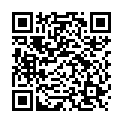|
|
|
| Module code: E1612 |
|
|
1V+4P (5 hours per week) |
|
6 |
| Semester: 6 |
| Mandatory course: yes |
Language of instruction:
English/German |
Assessment:
Oral exam (50%) and documentation (50%)
[updated 14.07.2016]
|
E1612 (P211-0037, P211-0038) Electrical Engineering, Bachelor, ASPO 01.10.2012
, semester 6, mandatory course
|
75 class hours (= 56.25 clock hours) over a 15-week period.
The total student study time is 180 hours (equivalent to 6 ECTS credits).
There are therefore 123.75 hours available for class preparation and follow-up work and exam preparation.
|
Recommended prerequisites (modules):
E1411
E1516
[updated 14.07.2016]
|
Recommended as prerequisite for:
|
Module coordinator:
Prof. Dr. Horst Wieker |
Lecturer:
Prof. Dr. Horst Wieker
Dipl.-Ing. Harald Krauss
[updated 14.07.2016]
|
Learning outcomes:
The students
-learn how to handle standard interfaces and protocol analyzer in telecommunications in practical work on real devices
-learn how to handle and analyze network systems (packet switched, circuit switched)
-program routers and switches in IP networks
[updated 14.07.2016]
|
Module content:
1. Protocol analyzing in different systems (narrowband, IP networks)
2. TNM seminars in SDH and IP networks
3. Configuring and programming of routers in IP networks, inclusive troubleshooting
[updated 14.07.2016]
|
Teaching methods/Media:
projector, blackboard, practical work on real network elements and networks
[updated 14.07.2016]
|
Recommended or required reading:
Barz, H.W.: Kommunikation und Computernetze, Carl Hanser, 1995 Etschberger, K.: Controller-Area-Network, Hanser Lienemann, G: TCP-IP-Grundlagen, Heise Perlman, R.: Bridges, router, switches und Internetworking-Protokolle, Addison-Wesley Sikora, A.: Wireless LAN, Addison-Wesley
[updated 14.07.2016]
|


